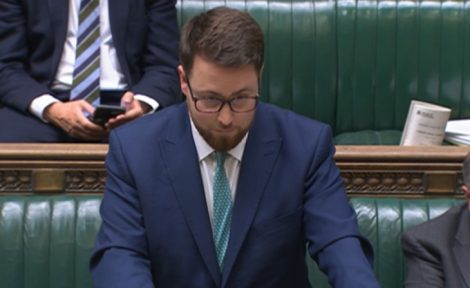BLOG: ‘Bold action needed in Private Rented Sector’
Goodlord’s William Reeve says that the lettings industry is already in the eye of the storm and policy makers have to stop kicking the can down the road.

It’s almost becoming cliché to say what a big year it’s been for the lettings market. Since 2019’s Tenant Fee Ban followed by the chaos into which Covid threw us in 2020 each year since has been characterised by intense market demand, major legislative updates, and a rapid pace of operational change.
Big years are now the norm. But the pressures the market is currently facing aren’t normal. And, right now, no one seems to want to be the ‘bad guy’ ready to take the tough, bold decisions to address them. Will policy makers step up to the plate in 2024? Or will the private rented sector question continue to be kicked into the long-grass?
RENTERS (REFORM) BILL
Whilst we are inching closer to get some clarity on what the final shape of the seismic Renters (Reform) Bill will be – a major point of uncertainty which has now been plaguing the industry for many years – the fundamental issues facing the private rented sector remain more acute than ever.
Compared to this time last year, average rents are now up 7%. And our latest State of the Industry survey revealed that nearly a quarter of letting agents saw up to 20% of their landlords selling at least one of their properties in the last 12 months. And 47% of landlords said they sold or attempted to sell a property during the same time period.
The market is being squeezed on both sides, with agents valiantly keeping things moving in the middle.
HOUSE BUILDING
A central part of the solution, as we all know, is house building. And yet targets are missed year on year.
In 2019, the Government pledged to build 300,000 homes a year. But numbers have sat between 200,000 – 250,000 every year since. At the same time, the population continues to expand – with the total UK population rising by 1% in 2022 and net migration standing at 672,000 in the year to June 2023.
In this year’s Autumn Statement the government pledged to spend £450m to help local authorities build 2,400 new homes.
DROP IN THE OCEAN
It’s a welcome gesture but, quite frankly, a drop in the ocean compared to the levels we need, as well as failing to address the wider infrastructure requirements – such as schools, transport links, medical services, and so on – that growing communities need.
For years, injecting a meaningful boost into the house and building market has been almost impossible. Rising NIMBYism, a reluctance to take decisive action, flaws in the planning system, a complete failure to incentivise local communities (unlocking so-called YIMBYism), and a lack of a national ‘planning commission’ that can take big decisions to get things moving, has created a perfect quagmire of inaction.
Politicians of all stripes are pro-housebuilding. But none are pro-house building on their own patch.
ESCALATING RENTS
As a result, supply and demand is out of sync. Tenants are being hit by escalating rents and a fight to find their next rental home. Landlords are facing rising mortgage rates, escalating regulatory costs and wider cost of living pressures which are driving more and more to sell.
This often means more buy-to-let properties leaving the Private Rented Sector market and moving into private ownership, contributing to the current cycle of pressure. And public and community services are increasingly stretched.
We need our policy makers to be the ‘bad guy’ and do the right thing. That means truly focusing on growing our housing stock over the long-term and being prepared to be unpopular in the short-term.
UNCLOG THE COURTS
Alongside housebuilding and a renewed commitment to expanding and strengthening all forms of national infrastructure, they should be taking rapid action to unclog the court systems, look again at the current proposals around fixed-term tenancies, and gather more data on the impact of short-term lets.
With an election due next year, expect to hear many ambitious words on this topic from both sides of the House of Commons.
But the real test will be in what politicians go on to deliver. If bold, decisive action isn’t taken, you can be sure 2024 will be another ‘big’ year for the industry. We can’t keep kicking the can down the road – we’re already in the eye of the storm.
William Reeve (main picture) is Chief Executive of Goodlord





Let’s address the Rental Crisis. Together
The UK has an under-occupancy rating showing that 69% of dwellings have one or more spare bedrooms. Of these, 37% are held by single occupants or sharers and 20.3% are in the Private Rented Sector (Census 2021).
That makes over 1.28 MILLION spare bedrooms in the hands of sharers or single occupants renting in the UK.
Opening up some of that space would benefit tenants (less rent per capita), landlords (more income), local councils (more property licenses), and the housing market in general (less pressure on rents, less homelessness).
If you have a spare room in your dwelling, talk to your tenant – your landlord – your agent, maybe they can help?!
More on this in my recent article on the topic: https://www.renthappily.co.uk/news/how-to-increase-profits-and-reduce-rents